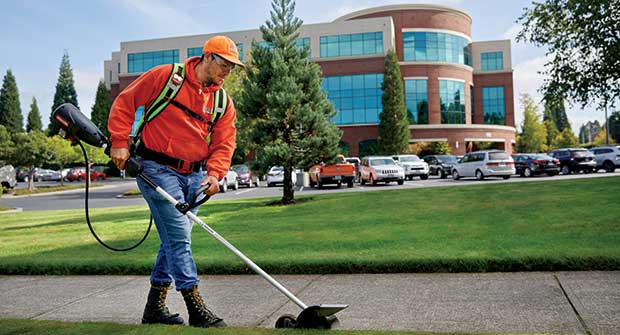Myth #3: Implementing battery power is an all-or-none scenario.
While there are many benefits to battery equipment, Grover says that at this point, companies should be wary of adopting an “all or none” attitude when it comes to the technology.
“It works on some routes, and it doesn’t work on other routes,” he says, noting that the company may not use all battery-powered equipment when it takes care of properties that have wide expanses.
On the other hand, when crews service small properties in downtown Portland, Ore., where they may go up elevators to access a site, they use battery-powered equipment.
He also notes that there is growing potential legislation, especially in certain municipalities in Oregon, to outlaw the use of small engine gas blowers, specifically.
“We’re wanting to understand the battery equipment because it may become legislated that we would need to use it,” he says. “Banning gas-powered equipment before the technology gets there is challenging. I think with people that want to be sustainable, sustainability is a process we’re moving to. We need to be patient.”
Pro tip
When considering battery-powered equipment, Gunn notes that landscape contractors should be aware that many of the batteries are brand specific.
“This forces you to choose a specific brand and stick with it as you grow and add various pieces of equipment within the same brand that those batteries can interchange within,” he says. “Do your homework and do the research necessary. Like anything, make sure you’re buying the right tool for the job. It’s no different from gas-powered equipment; there are different products for different applications.”


